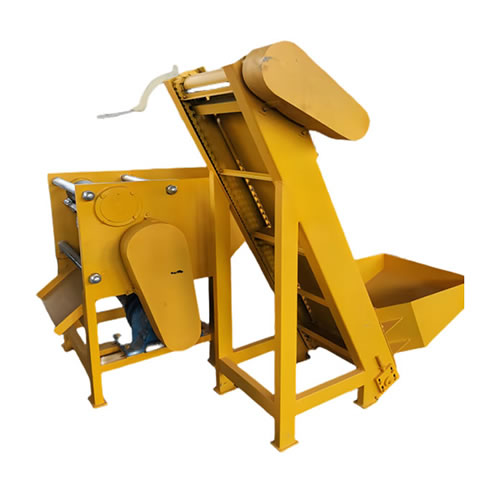Application of Pebble Raw Material in the Hard Material Crushing Equipment in Singapore

In the bustling island-state of Singapore, a significant emphasis is placed on infrastructure development and maintenance. One of the key components of this endeavor involves the processing of hard materials, such as pebbles, which are commonly used in construction projects. Pebble raw materials, with their naturally occurring rounded shapes and varying sizes, present unique challenges for crushing equipment. This article explores the application of pebble raw materials in Singapore's hard material crushing equipment and how these machines cater to the specific needs of processing such materials.
The first challenge in using pebble raw materials is their irregular shape and size. Unlike other more uniformly shaped rocks, pebbles do not crush evenly under standard equipment. To address this, Singapore's crushing equipment manufacturers have developed machines that can handle the variability of pebble sizes effectively. These crushers often feature adjustable settings that can be fine-tuned to accommodate different pebble sizes, ensuring an optimal level of crushing without excessive wear and tear on the machine.
Another consideration is the abrasive nature of pebbles. The smooth surface of pebbles may seem less threatening than jagged edges of other rocks, but their durability requires crushers with robust designs and high-wear resistance. In response, Singaporean equipment suppliers have incorporated high-quality steel alloys in the manufacturing of their crusher components. These alloys not only extend the lifespan of the machinery but also maintain efficiency by resisting the constant pressure exerted by the tumbling action of the pebbles during the crushing process.

Furthermore, the efficiency of the crushing operation is paramount in a land-scarce country like Singapore. To maximize productivity, crushers designed for pebble materials often include features such as larger feed openings to reduce blockages and advanced screening systems to remove dust and fines. This not only speeds up the crushing process but also ensures that the end product meets the stringent quality standards required for construction aggregates.
Environmental concerns are also at the forefront of Singapore's industrial practices. As such, many crusher models are equipped with technologies that reduce noise pollution and minimize the generation of excess waste. Additionally, some equipment is designed to allow for the recycling of materials, further contributing to sustainable practices within the industry.
In conclusion, the application of pebble raw materials in Singapore's hard material crushing equipment reflects the country's commitment to innovation, efficiency, and sustainability. By tailoring machinery to suit the unique properties of pebbles, local manufacturers have managed to overcome the inherent challenges associated with these materials. The result is a fleet of crushing equipment that not only meets the demands of the construction sector but also adheres to the environmental and efficiency standards expected in one of Asia's most progressive nations.